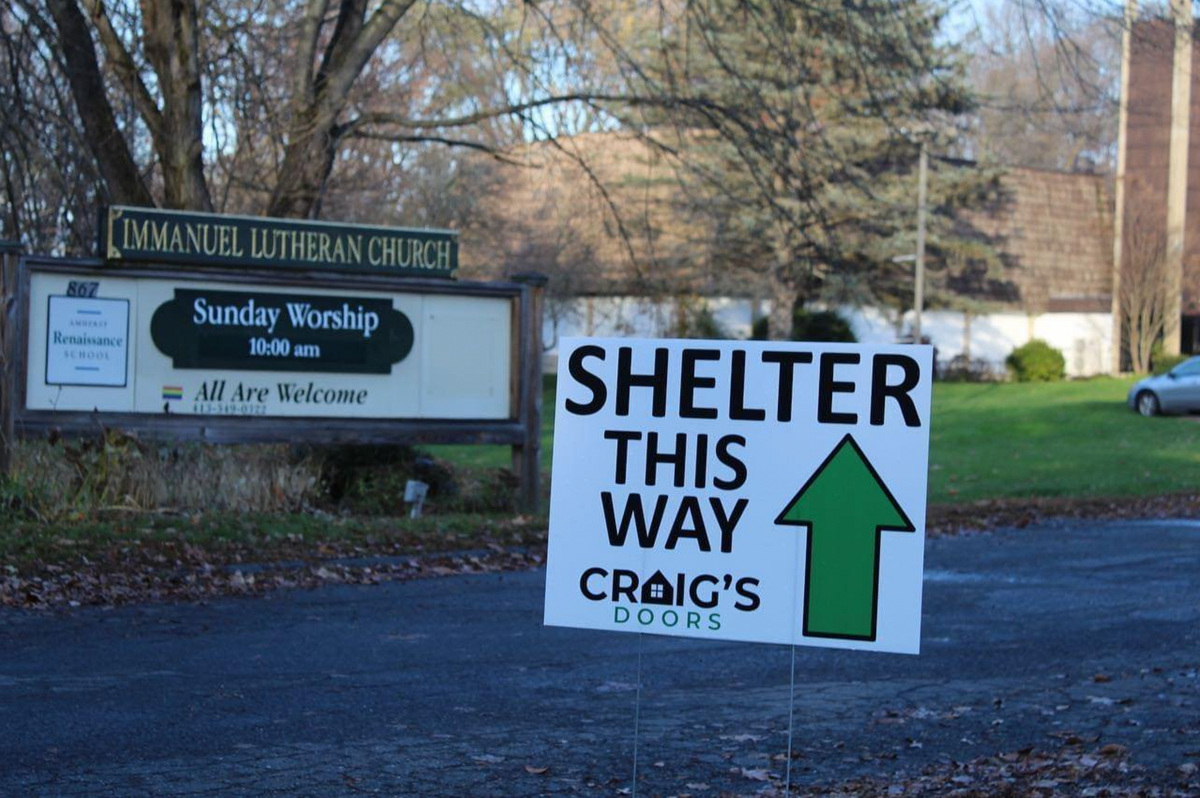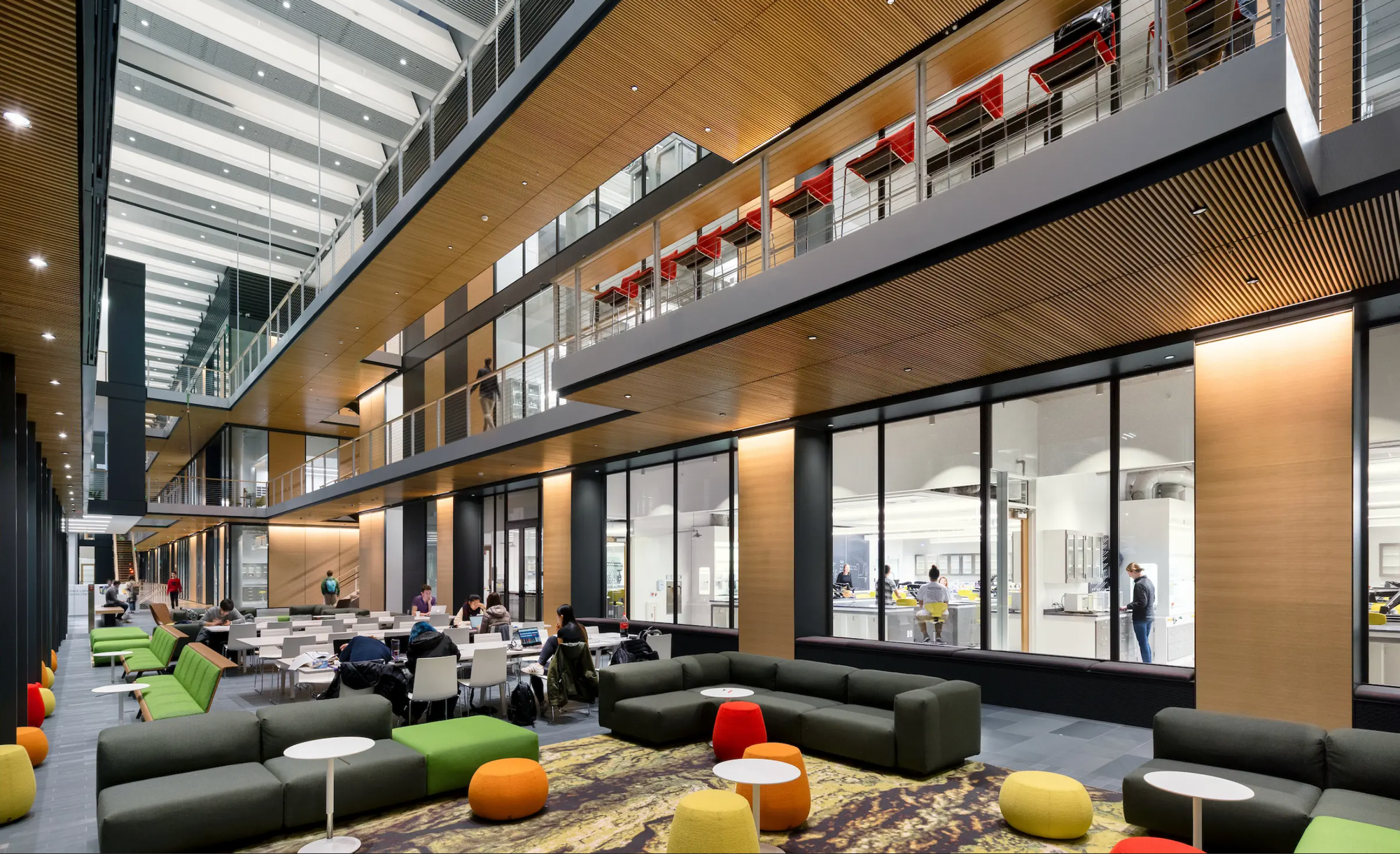Amherst Houselessness: Resources On and Off Campus
Hampshire County, like many places around the country, is facing a rise in homelessness. Staff Writer Matthew Fisher ’26 explores the impact on unhoused individuals, the college, and the larger local community.

When living on the Amherst College campus and walking around town, it may be hard for students to see the struggles faced by other residents of the Pioneer Valley. In recent years, one of the most notable local challenges has been a rise in homelessness and housing insecurity.
In January 2019, a Point-in-Time count — a U.S. Department of Housing and Urban Development process that tallies the number of people without a home on a given night — found 16 homeless people in Amherst, including those in shelters and on the streets. In 2023, this number had increased to 82 people.
The number of homeless individuals in Amherst is still far fewer than in neighboring areas. The city of Holyoke, part of Hampden County, has one of the largest homeless populations in Massachusetts. WWLP reported that the homeless population in the county went from 2,294 in 2022 to 2,683 in 2023, a one-year increase of nearly 400 people. The numbers for 2024 are predicted to be even higher.
Although the numbers in Hampshire County (to which Amherst belongs) are not as severe as in Hampden, they are still cause for concern. There were at least 240 people throughout the county who were without a home as of March 2023. These numbers often undercount the true total as they do not account for people who experience homelessness in ways that the federal government does not consider, such as people who are staying on friends’ or families’ couches.
Signs of rising homelessness can even be seen on Amherst’s campus. I spoke with Bryan, a 40-year-old from Lynn, Massachusetts who asked to be identified by his first name. Bryan has been coming and going from the Pioneer Valley “for a long time” and has been homeless in the Amherst area since June 2023. The things that Bryan carried with him were his only possessions — a backpack, a pair of headphones, and his clothes.

Bryan said that he sometimes spends time in Frost Library or the Science Center, often late into the night, using the spaces as a place to rest and charge his phone.
The Science Center has numerous bathrooms, a functioning cafe, and showers — all major draws for someone without access to these amenities elsewhere. Bryan said that he has occasionally been asked by college staff to leave the Science Center, even when students are not using the area. While Bryan said he understood that they were just doing their jobs, it was amusing to him that he would be asked to leave when he wasn’t causing any problems.
“They just would come up to me while I’m charging my phone, watching something or whatever, and they’re just like, ‘Well, you can’t be here unless you work here or are a student,’ which, I mean, I get. I understand Amherst College is a private school, but like, I wasn’t in there making a mess or making a ruckus.”
Although he lacks a consistent job or place of residence at the moment, Bryan remains positive about his situation. He said that he’s always liked the Pioneer Valley and that he doesn’t feel like he is struggling. “There’s a lot of resources, ways to get a meal every day, just like, I don't know, there’s an energy to this whole valley, really. So that’s what kind of kept me here.” Bryan added that he is able to find occasional work as well, sometimes through friends in the area.
Bryan has also spent a few nights over the past few months at Craig’s Doors, one of the local shelters in town. He said that his experiences there were all very pleasant. “They’re really kind people. I never had a problem there.” However, more often than not, he will sleep in outside spaces around town, sometimes in a hammock.
Kathleen, another individual who is homeless in Amherst and asked to be identified by her first name, has been in and out of Amherst since 1991. Like Bryan, she has spent several nights at the Craig’s Doors shelter, but said that occasionally, she has felt unsafe there. She said that she prefers to find other places to stay, even if that means sleeping in empty buildings or outside. When asked if she knew other people who routinely resorted to sleeping outside, Kathleen responded, “Absolutely. In tents all around the town, all around the surrounding communities in the woods, near the grocery stores.”
Kathleen used to spend time in some campus buildings, resting or escaping the cold. She added that she would also buy food at the cafes in Frost or the Science Center in order to be considered a paying customer. Like Bryan, Amherst staff occasionally asked her to leave buildings.
Kathleen explained that she had one experience where she felt she had been treated more harshly than necessary, and she claims to have been asked not to return to campus. Since that interaction, Kathleen said she would not spend any more time on campus.
Administrative Director of the Science Center Jess Martin said they were unaware of any incidents of ACPD or other college staff asking non-college-affiliated individuals to vacate the Science Center.
Chief of Police John Carter did not comment on any specific cases but said over email that Amherst College Police Department (ACPD) officers have the authority to give verbal and written notices of trespass warning to individuals.
Carter said that ACPD often encounters people who live on the streets of Amherst trying to sleep overnight in campus buildings. “When this happens, ACPD works with the Town of Amherst Community Responders for Equity Safety and Service (CRESS) to provide access and transportation to shelters,” Carter said. He added that ACPD has also tried to “connect people in these situations with any local family.”
Martin said that, while the Science Center is not a shelter, they would not see any problem with someone using these spaces as long as they are not causing damage or creating safety concerns. “If someone was destroying property, then I think people would report that,” Martin said, “But yeah, I don’t see any harm in somebody taking a shower.” Martin also mentioned that the Science Center was designed to create a welcoming environment, noting that the main room on the first floor is officially referred to as the “the living room.”
President Michael Elliott echoed Martin’s sentiment, saying that while the college is “not set up to support” unhoused people, “we also want to be good neighbors to everybody who’s around us.”
“We’re not interested in creating barriers to the campus that are not necessary,” he added.
However, Elliott did emphasize that college buildings are not officially public spaces. “They are open buildings, and we make them available to the public, but we are a private college, and we do have both the authority and responsibility to know who's on the campus, and occasionally to ask people to leave if they’re not here on campus business,” he said.
Both Martin and Elliott said that ACPD determines who is asked to vacate college facilities. Carter said that ACPD has a set of criteria to determine if a trespass notice will be issued, including if they believe that an individual might return to campus for the purpose of “using campus facilities or grounds without authorization, disrupting academic business, [or] disrupting residential life.” Carter added that “ACPD gets involved if there is an issue and in response to a complaint by a community member.”
Both Elliott and Martin expressed the hope that if anyone in need is asked to leave campus, they are guided towards the necessary resources. “You don’t want to just put somebody out in the elements, no matter what time of year it is, but especially as we get into these sort of colder nights,” Martin said.
Elliott also spoke about the various ways in which Amherst is involved in the town and supports initiatives for people in need. “We donate food that we’re not using. We often facilitate student groups that want to do a volunteer project to support them,” he said, “We do make financial contributions to the town services and other projects … I think that’s something we could be proud of.”
“It’s really important to me that the college is seen as a resource for the town, and also that the town and the other communities around us are part of the education of our students,” Elliot said.
The housing shortage in Amherst and the surrounding communities is something “that all of the presidents of the Five Colleges are concerned about,” Elliott continued. According to Elliott, the college has explored the possibility of whether any college-owned land might provide good opportunities for housing development, part of a broader consideration of the college’s role in increasing available housing in the region.
The town of Amherst, in cooperation with Barrett Planning Group, held several open meetings open to town members in Jones Library last week, where they presented a new housing production plan and solicited feedback from the community.
The town of Amherst has an extensive set of resources to support unhoused people and others in need. Not Bread Alone (NBA), for example, provides meals to people in the community. Many of the people served there are homeless. Along with NBA, the food pantry Amherst Survival Center provides food to people from all over the Pioneer Valley. East Gables, an affordable housing project on Northampton road, lies next right to Amherst College’s Pratt field. Valley Community Development Corporation (Valley CDC) opened the development last Fall — adding 28 affordable apartments to Amherst’s community.
The aforementioned Craig’s Doors is an emergency shelter for individuals over the age of 18. Craig’s Doors has two sites, one in Amherst with 28 beds and one in Hadley with 38 beds, in addition to 15 units of low-threshold housing throughout Amherst. The shelter provides bedding, food, and individual case management, often for individuals with substance use disorders and complex mental health issues. Almost all of the people they serve are chronically homeless, meaning they have been homeless for three or more years.
Executive Director of Craig’s Doors Tim McCarthy said that they have seen traffic increase in recent years as the number of unhoused people in the region has risen. “Part of it is because we have created such an innovative program that people are drawn towards us,” McCarthy said.
McCarthy added that they have an internship program and a volunteer program, and while they have not yet had any involvement with Amherst students, they would love to have more engagement with the college.
McCarthy said, “I don’t have anything but nice things to say about our current town government.” However, McCarthy emphasized that there is so much work to be done. “People have become overwhelmingly comfortable with witnessing the suffering of their neighbors. And wealth inequality continues to grow at a brilliant, unsustainable rate.”





Comments ()